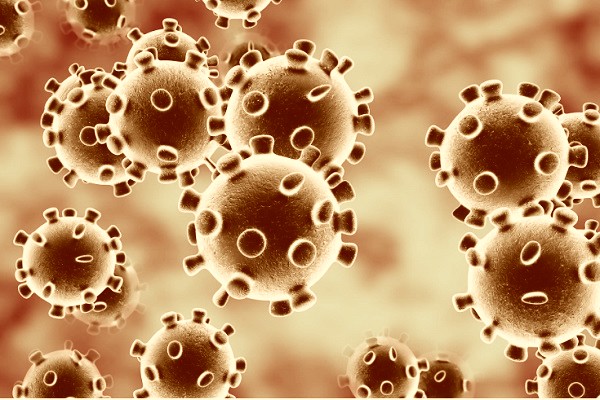 Coronavirus (COVID-19) tally as compiled by Johns Hopkins University. (Previous numbers in parentheses.)
Coronavirus (COVID-19) tally as compiled by Johns Hopkins University. (Previous numbers in parentheses.)
Total U.S. confirmed cases: 8,708,553 (8,646,085)
Total U.S. deaths: 225,817 (225,282)
Total global cases: 43,623,111 (43,187,134)
Total global deaths: 1,161,422 (1,155,653)
Nearly 70,000 new cases in 24 hours
The wave of coronavirus (COVID-19) cases is getting higher. On Monday, an analysis of data from Johns Hopkins University showed 69,967 new cases of the disease in the U.S. The outbreak continues in most areas of the country.
The seven-day average of new cases is also rising, suggesting the wave is building momentum. The seven-day average is up 20 percent in just the last week.
Some epidemiologists are worried because the new surge in cases is starting from a higher baseline of roughly 40,000 cases per day, compared with 20,000 cases per day during the summer increase.
Scientists question ‘herd immunity’
A major new study by researchers at Imperial College of London has shown that after patients recover from the coronavirus, the level of antibodies in their blood begins to decline. That means hopes for “herd immunity” to conquer the pandemic may be unfounded.
The researchers screened 365,000 people in the UK over three rounds of testing between June and September.
Their analysis of test results found that, rather than people building immunity over time, the number of people with antibodies that can fight COVID-19 declined by nearly 26 percent during the study period.
Setback for Eli Lilly treatment
A government-run study of Eli Lilly’s antibody treatment for the coronavirus ended after it was concluded the drug was “unlikely” to help hospitalized patients. But company CEO Dave Ricks told CNBC he still believes it could still help some patients.
Ricks says the patients in the study had become infected weeks earlier and were suffering from very severe symptoms. Many, he said, were on supplemental oxygen. He said other studies of the drug are continuing.
“It’s disappointing, of course,” Ricks said. “We would have liked to have shown a benefit in the hospital. It doesn’t appear that that benefit is there, so this chapter of that study will close.”
The virus is crushing the rental market
The Wall Street Journal reports the home purchase market may be getting all the attention during the pandemic but it’s the rental market that could be the cause of the next housing crisis.
The report notes many renters are among those who lost their jobs when the economy shut down in March. Many have been unable to pay their rent, putting a financial strain on landlords who may have mortgages to pay.
Many renters are legally protected from eviction for non-payment but that protection is set to expire in January. The Journal notes those renters — many still unemployed — will then be on the hook for their missed rent payments.
How big is the risk of germs on food surfaces?
It’s a question many consumers have probably asked themselves over the last few months: Can you get the coronavirus from handling or eating food that has been contaminated with virus germs?
Researchers at Virginia Tech are about to find out. They’re studying how long SARS-CoV-2 survives on surfaces, focusing on its survival on food, food contact surfaces, and other points along the food supply chain.
The two-year study will determine how to ensure that someone won’t contract the virus from handling packaging and how to properly sanitize at all levels of food distribution and production.
Around the nation
- Pennsylvania: Pennsylvania started the week with 1,104 patients in the hospital being treated for COVID-19, a 31 percent jump from the week before. Over the past month, the two-week daily average number of patients has more than doubled, from 452 to 931, according to the Pennsylvania Department of Health data.
- California: Scientists at the Brown School of Public Health claim California’s testing capacity is far from where it needs to be to prevent major outbreaks ahead of the holidays. “It’s really important that we get tested,” said Ananda Wolchock, an epidemiologist. “We don’t want our family at risk.”
- New Jersey: Newark is heading into a second-wave lockdown as coronavirus cases around the state move sharply higher. Starting today, all Newark businesses, except grocery stores, pharmacies, and gas stations, must close at 8 p.m. Restaurants can continue outdoor dining until 11 p.m.
Read the entire article here.
Become a Harlem Insider!
By submitting this form, you are consenting to receive marketing emails from: Harlem World Magazine, 2521 1/2 west 42nd street, Los Angeles, CA, 90008, https://www.harlemworldmagazine.com. You can revoke your consent to receive emails at any time by using the SafeUnsubscribe® link, found at the bottom of every email. Emails are serviced by Constant Contact







